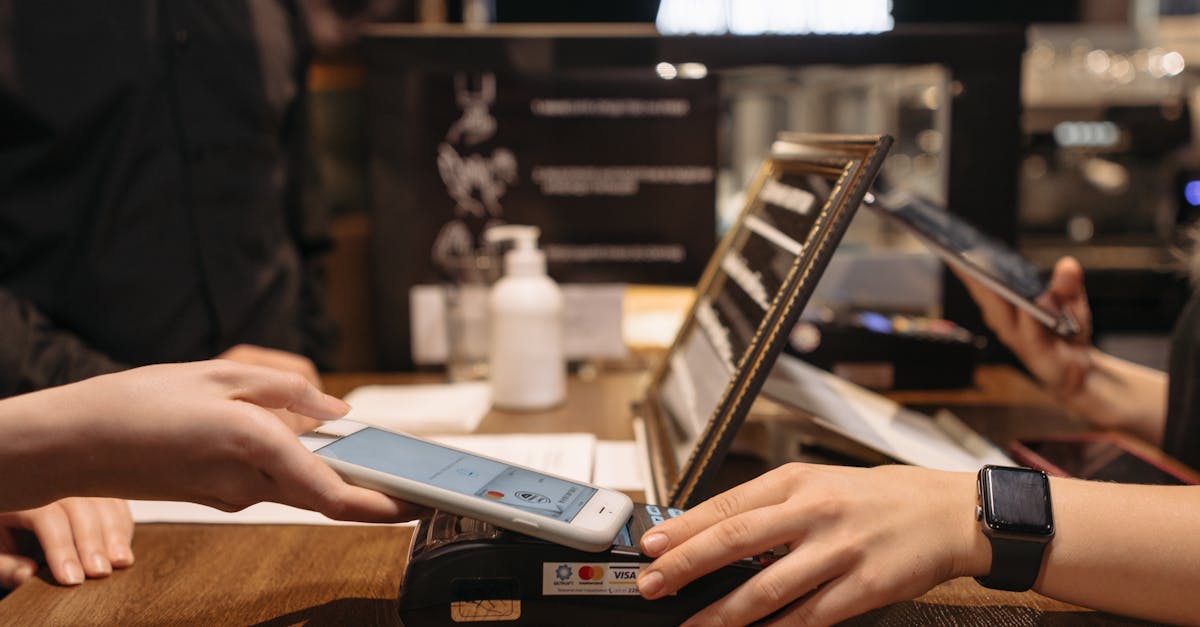Pulse of Digital Wallets
Introduction
In today's ever-evolving digital landscape, the concept of carrying a physical wallet is becoming increasingly obsolete. Digital wallets have emerged as a revolutionary tool, fundamentally transforming how we manage and transact with money. Offering convenience, security, and instant accessibility, these wallets have become indispensable for millions worldwide. From simplifying everyday transactions to enabling cross-border payments, digital wallets are redefining the future of finance. They integrate seamlessly with smartphones and online platforms, bridging the gap between traditional banking and modern consumer needs. As we dive deeper, let's explore what makes digital wallets the new pulse of contemporary finance.
Advertisement
The Evolution of Digital Wallets
Just a decade ago, the idea of using a phone for financial transactions seemed futuristic. The journey from digital wallets' inception to becoming mainstream tools is a testament to rapid technological advancements. Initially, they were primarily used for online shopping, linked to card information for ease. Over time, these wallets evolved. Tech giants like Apple, Google, and PayPal introduced apps that transformed phones into compact wallets. Innovations such as Near Field Communication (NFC) added more layers, allowing contactless in-store payments. The evolution continues, with blockchain technology promising even greater capabilities.
Advertisement
Enhanced Security Measures
A significant draw of digital wallets is the added security they offer. Traditional wallets can be lost or stolen, exposing cash and cards to potential theft. In contrast, digital wallets employ sophisticated security protocols. Biometric authentication, such as fingerprint or facial recognition, reduces unauthorized access risks. Additionally, tokenization—which replaces card details with encrypted data—adds another security layer during transactions. Two-factor authentication and real-time transaction alerts offer enhanced user control. This blend of technology and security makes digital wallets a reliable choice in the digital age.
Advertisement
Integration with E-commerce
Digital wallets have seamlessly integrated with the booming e-commerce sector, enhancing online shopping experiences worldwide. Streamlined checkouts save valuable time, often reducing cart abandonment rates. By storing multiple payment methods, they offer consumers flexibility, bolstering user satisfaction. Services like Apple Pay and Google Wallet provide a comprehensive shopping experience without the need for manual data entry at every purchase. Loyalty programs and digital coupons are easily managed and redeemed through these platforms, providing additional incentives for users to adopt digital payments for online purchases.
Advertisement
Bridging Financial Ecosystems
Beyond just consumer transactions, digital wallets are reshaping entire financial ecosystems. They're enabling peer-to-peer transfers with ease, from splitting dinner bills to sending money abroad. Platforms like Venmo and Cash App have made personal transactions socially engaging. Meanwhile, cross-border payments are becoming more accessible, bypassing traditional banking obstacles. Emerging markets, often underserved by conventional banking, benefit immensely. Here, digital wallets provide financial services to the unbanked, fostering a more inclusive financial landscape. The adaptability of these wallets helps in global financial integration.
Advertisement
Environmental Impact and Sustainability
The shift towards digital wallets also has positive environmental implications. By reducing the dependence on paper and plastic, they contribute to the decreasing demand for paper receipts and plastic cards. This move aligns with the green movement, promoting sustainable business practices. The infrastructure supporting digital wallets emphasizes minimal resource usage. Also, transaction documentation becomes digital, reducing clutter and waste. Companies utilizing eco-friendly server farms directly link digital finance to sustainability. These practices demonstrate financial innovation that's environmentally conscious.
Advertisement
Challenges in Adoption
Despite their benefits, digital wallets face certain challenges that hinder universal adoption. One key obstacle is the lack of universal regulatory frameworks across countries. Moreover, concerns about data privacy and cybersecurity remain predominant barriers. Critically, the disparity in mobile technology accessibility affects the adoption rate in some regions. Additionally, the reluctance of older generations or those uncomfortable with digital transitions can delay widespread acceptance. Addressing these hurdles requires collaborative efforts between tech companies, financial institutions, and policymakers to build trust and expand digital access.
Advertisement
The Future of Digital Wallets
The horizon for digital wallets looks promising, with technological advancements set to enhance their capabilities further. Incorporating artificial intelligence can lead to smarter financial management suggestions. Blockchain technology could revolutionize transaction transparency and security. There is also potential for integrations with the Internet of Things (IoT), automating transactions in everyday scenarios, like automatic payments for fuel or groceries. Digital identity verification could elevate user experience, offering seamless financial interactions while ensuring security. Digital wallets are poised to be integral components in the ever-expanding digital economy.
Advertisement
Conclusion
As digital wallets continue to reshape the financial landscape, their importance in daily transactions becomes undeniable. They amalgamate technology, security, and convenience, driving finance into the future. While certain challenges remain, the potential for widespread adoption and innovation is vast. As they become more sophisticated, digital wallets will likely surpass mere financial tools, evolving into platforms for comprehensive personal and business finance management. Embracing this shift could usher in an era of enhanced financial freedom and accessibility for all.
Advertisement








